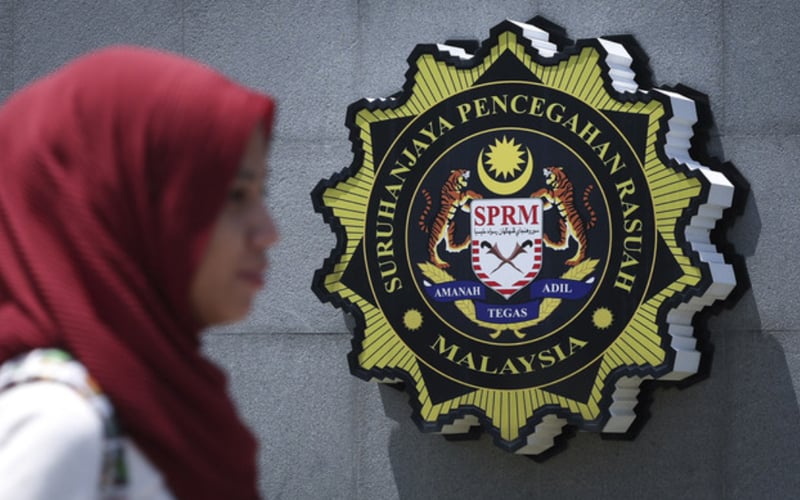
From Zaleha Abdul Ghani
I refer to FMT’S article published today quoting Center to Combat Corruption and Cronyism (C4) as claiming that the Malaysian Anti-Corruption Commission (MACC) had remained “silent” on the prime minister’s “threat” of criminal investigation against two unnamed political leaders if they did not return money allegedly stolen from the public purse.
C4 claimed the MACC was silent on this issue and thus the MACC was not independent and asked if it was “waiting for the prime minister to give instructions”.
C4 CEO Pushpan Murugiah further said the prime minister’s “statement suggested that enforcement agencies were under executive control and were open to be used as instruments of intimidation”.
I thought it strange that C4 said the MACC was silent when its chief commissioner Azam Baki had already responded to that issue.
Azam was reported, in several news dailies, as saying he did not think it was a problem as the prime minister was the head of public officials and had the responsibility to advise public officials to not get involved in corruption.
I think that is a valid response. As the head of the executive and the prime minister of the nation, Anwar can reveal alleged wrongdoings and ask for these to be investigated, and it is up to the MACC or the police to take that information and open investigation papers.
Secondly, on what basis does C4 accuse the MACC of “waiting for instructions from the PM” and being under executive control?
I think it smacks of hypocrisy for C4 to say that now. I recall that when Latheefa Koya was appointed in 2019 by the then prime minister to head the MACC, C4 welcomed it heartily. The only thing C4 said was that she should resign from PKR.
C4 did not reject the appointment even though it was clear as daylight that it was a political appointment by the former head of the executive and presumably must abide by the prime minister’s instructions. When Dr Mahathir Mohamad resigned, Latheefa resigned as well.
So which is it? One day it is okay for the prime minister to appoint his own chief commissioner, another day, it is not okay even though the prime minister did not appoint this chief commissioner?
For the record, MACC is now headed by a chief commissioner who rose through the rank and file within the MACC and was appointed by former prime minister Muhyiddin Yassin, who, interestingly, has been investigated and charged by the same chief commissioner.
Thirdly, it should be duly noted that the MACC, by law, does not have to report to anybody or get the permission of the prime minister to commence an investigation. It is an independent commission and its chief commissioner is appointed by the Yang di-Pertuan Agong.
On the other hand, in Singapore, it was revealed in a speech by Prime Minister Lee Hsien Loong on July 5, 2023 that he was briefed by the director of the corrupt practices investigation bureau (CPIB) regarding a case that involved a minister and that he, as the prime minister, had given the green light for the case to be investigated.
Very interesting indeed that the PM’s permission has to be sought to investigate a case there. And yet it is acceptable. Similarly, in Indonesia, its anti-corruption agency is subservient to Parliament and must obtain permission from a supervisory board before it can commence on certain aspects of investigations.
I think instead of lambasting our law enforcement agency for every little thing, let us look at productive ways we can bolster the independence and strength of the MACC as an even more effective graft-fighting entity.
For one, security of tenure for its chief commissioner, just like the chief justice, would do much to strengthen its independence in appearance and in substance. It is also high time the commission has its own service commission so that it is not dependent on the government’s public service commission for the hiring and firing of its own staff.
In addition, a percentage of the country’s GDP that is agreed upon and passed in Parliament should go to graft fighting, instead of having the MACC’s budget dependent and reliant on the finance ministry.
These proposals would be more useful for fighting graft than just continually tearing down our anti-corruption commission. - FMT
Zaleha Abdul Ghani is an FMT reader.
The views expressed are those of the writer and do not necessarily reflect those of MMKtT.


No comments:
Post a Comment
Note: Only a member of this blog may post a comment.